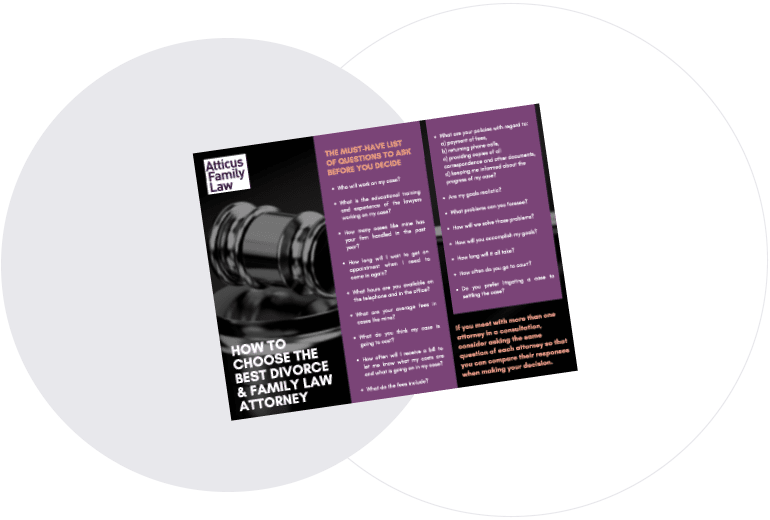Washington County Divorce Lawyers
Washington County Divorce Lawyers
Divorce is a uniquely difficult transition, but working closely with an experienced Washington County divorce lawyer can help the legal process go far more smoothly and will help ensure that your rights are well-protected. While no two divorces follow the exact same path, there are some divorce basics that apply across the board.
Minnesota Divorce
Divorce in Minnesota is no-fault, which means marital misconduct does not play a role. You’ll need to demonstrate that your marriage is irredeemably broken, which usually involves living apart for at least 180 days (or otherwise demonstrating serious marital discord). Further, for the state to have jurisdiction, at least one of you must have lived in Minnesota for a minimum of 180 days prior to filing for divorce.
The Division of Marital Property
The major financial component of your divorce is likely to be the division of your marital property, which generally refers to the property you and your spouse acquired together as a married couple. The court seeks a division that is equitable rather than exactly even. In the process of determining equitability, it takes a variety of factors into careful consideration, including:
- The length of your marriage
- You and your spouse’s age and health status
- You and your spouse’s education, earning capacity, vocational skills, occupation, employability, income, and station in life
- You and your spouse’s current wealth and your presumed future financials
- The contributions each of you made to the marriage
- Any financial responsibilities related to another marriage that either of you has
Obtaining an equitable division of marital property that accurately reflects the true value of those assets is essential.
Child Custody Arrangements and Child Support
In Minnesota, barring a compelling reason, both parents generally share legal custody, and this means they share the parental rights and responsibilities of making important decisions on behalf of their children. Such decisions relate to their children’s education, extracurriculars, non-emergency health care, and religious upbringing.
Minnesota parents typically also share physical custody, but often one parent will become the primary custodial parent with whom the children live primarily while the other parent has a visitation schedule. Further, because both parents obviously remain financially responsible for supporting their children post-divorce, the parent with the visitation schedule is usually required to pay the other parent-child support that is based on state guidelines.
Spousal Support
Spousal support – what many people think of as alimony – is not guaranteed in a divorce, but it is a legal mechanism to help offset a financial discrepancy between exes after a divorce. If one spouse has a financial need and the other spouse has the financial ability, the court may order that alimony be paid. Alimony is typically used as a temporary means of helping a financially disadvantaged spouse find his or her financial footing.
Don’t Put off Contacting an Experienced Washington County Divorce Lawyer
The dedicated divorce lawyers at Atticus Family Law – proudly serving Washington County – have extensive experience helping clients like you obtain divorce terms that work for them. We care about your case, so please don’t hesitate to contact us today.

FREE Download.
10 things you need to secure in your divorce plus crucial questions to choose an attorney. Critical points such as:
- Decisions about the children’s future and parenting time.
- Responsibility for spouse’s debt and spending.
- Separation of assets and income.
- Who will work on my case?
- How long will it all take?
- How will you accomplish my goals?
- How much will it cost and what do the fees include?
Want To Get A Head Start?
Enter your information to download these guides to get a leg up in securing a fair outcome in your family law case.

Schedule a consultation
Ready For A Fresh Start?
Ready to take the first step towards a brighter future?
Click the button below to connect with our experienced divorce attorney and start your journey toward a better tomorrow.
Get Started Now
